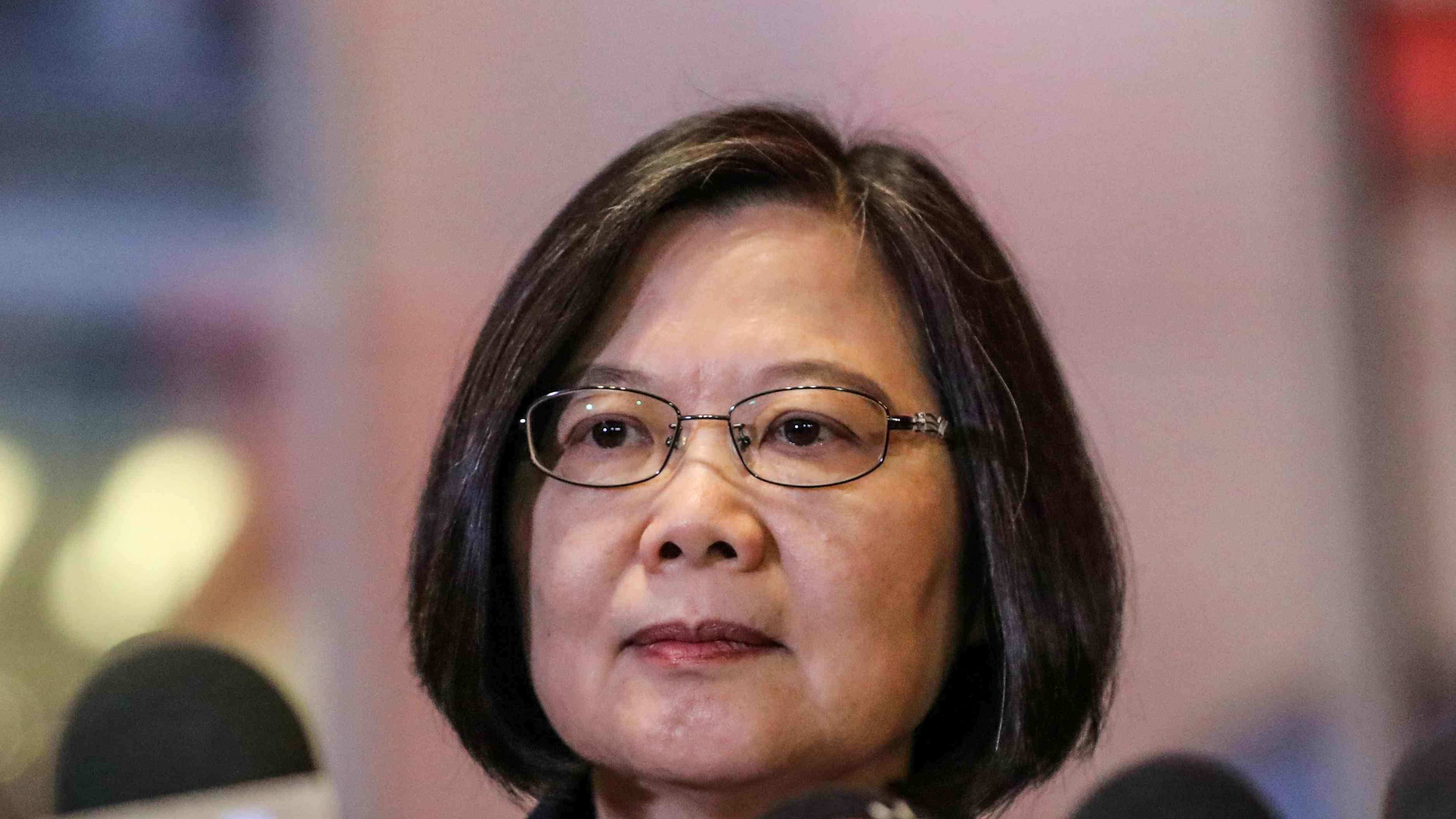
Editor's note: CGTN's First Voice provides instant commentary on breaking stories. The daily column clarifies emerging issues and better defines the news agenda, offering a Chinese perspective on the latest global events.
Answering a question on February 3, State Department spokesman Ned Price, after what appeared to be a hesitation, affirmed that U.S.' support for one-China policy "has not changed."
The timing of the State Department's reiteration of U.S. support for the one-China policy just before Joe Biden's highly-anticipated foreign policy speech is a promising sign. The Trump era was defined by the administration seeding constant reflexive anger and disdain for China in the minds of the U.S. public, with cruel references to the "China virus" and glib claims that China was ripping off U.S. workers. It was characterized by baseless accusations, vague demands, impulsive actions and the use of international policy as a performance to achieve domestic policy goals.
The performance succeeded, and the U.S. public sentiment turned against China. The Biden administration, bogged by the high anti-China public opinion in America, was expected to labor to appear "tough on China."
One area where the Biden administration has tested China to see how far it can push is on the Taiwan issue. Biden made a point of inviting a member of the Taiwanese authority to his inauguration, and has also sent a naval strike group deep into Chinese waters near Taiwan. It had toyed with forceful language, promising to deepen ties with Taiwan and noting in a January 23 statement: "Our commitment to Taiwan is rock-solid." With the U.S. public happy to see Washington poke China in the eye, public support for Taiwan is a very popular public position for Biden to take.
However, it is common knowledge that there is a price to pay for going overboard. Some Taiwan politicians would love to leverage this mood to further their goal of independence. They would have no hesitation to drag the U.S. into a shooting war to achieve this aim. And in the American public imagination, the U.S. is the world's military superpower and can enable Taiwan's independence if armed conflict is to be the decider.

Taiwan's leader Tsai Ing-wen speaks in New York during a stopover in the U.S., July 11, 2019. /Reuters Photo
Taiwan's leader Tsai Ing-wen speaks in New York during a stopover in the U.S., July 11, 2019. /Reuters Photo
But it looks like the U.S. military and civilian policy makers under Biden know that getting into an armed conflict to defend Taiwan separatists would be costly for both sides and doomed to fail. After all, Taiwan is within China's borders, and the Taiwan Straits is just about 130 km at its narrowest location.
Biden has, in the past, shown to be aware of this risk. In 2001, the then-senator Biden warned Taiwan: "We are not willing to go to war over your unilateral declaration of independence." And the risk of war is far greater in today's fraught atmosphere than it ever has been. And the State Department's statement signals that Biden hasn't been led astray by the volatility left over from the previous administration.
There's no reason why two countries can't thrive and compete in a healthy and respectful way that doesn't cross each other's red line. Secretary of State Antony Blinken has shown that the administration is fully aware that the best way for the U.S. to increase its influence is to bolster its relationships with other countries and work on its own core competitiveness.
Blinken recognizes that the competition between the U.S. and China is over the rules, norms, and institutions by which countries relate to one another. But the U.S. should understand it has no natural right to set these rules, and China seeks a voice in crafting them instead of being treated as an outlier albeit being the second largest economy in the world.
And China has made clear that it welcomes a return by the U.S. to a multilateral approach in international affairs. China would also welcome the U.S. focusing on its own shortcomings and lack of competitiveness, rather than scapegoating China for all of America's problems.
Healthy competition and negotiating through multilateral institutions is the correct path forward.
Trying to hobble China's rise by interfering in its internal affairs or reigniting a long-settled civil war will only have destructive results. Previous administration's interference in Hong Kong, Xinjiang, Tibet and Taiwan nearly tanked China- U.S. relations and hindered global efforts on confronting common problems. And it had given confidence to the separatist politicians in Taiwan and bolstered their delusion about peeling Taiwan off of China.
But Biden administration's statement on recognizing one-China policy reaffirms the fundamentals in the China-U.S. relationship. It is a clear message that the U.S. won't back efforts to make Taiwan independent from China. There might be conflicts between China and the U.S. over the Taiwan issue, but Biden has drawn his red line. And it'd be in everyone's interest that he doesn't break it in the face of immense public and political pressure.
(If you want to contribute and have specific expertise, please contact us at opinions@cgtn.com.)

